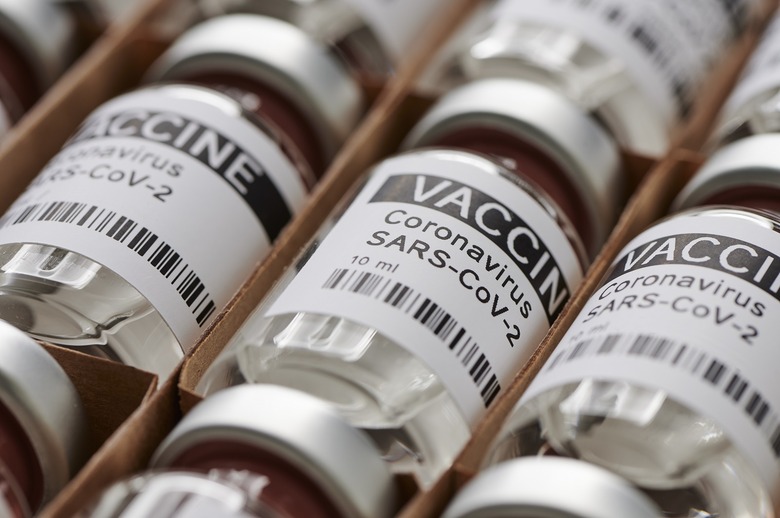Groundbreaking New Coronavirus Vaccine Candidate Also Kills The Flu
- Scientists have come up with a groundbreaking coronavirus vaccine candidate that has a few theoretical advantages over other candidates.
- Researchers from Hong Kong created an experimental drug that might protect against the coronavirus and the flu.
- The vaccine would be administered as a nasal spray rather than a traditional injection so it can generate a response at the typical entry site for these infectious pathogens.
At least one coronavirus vaccine might be approved for emergency use by the end of the year in America and the EU, at which point at-risk categories of people could be immunized. More ample vaccination campaigns will start worldwide in the first months of 2021, as more vaccines become available. That's assuming some of the experimental drugs that reach the final stage of testing prove to be safe and effective, as not all drugs will be successful after Phase 3 trials no matter how promising they seemed.
What's great about the current state of COVID-19 vaccine research is that there are hundreds of ideas in development, of which only about a dozen have reached Phase 3. The more vaccine approaches available, the more likely we are to find one that works. And scientists have come up with what might be one of the most exciting COVID-19 vaccine concepts so far — not just because it's can be administered via a spray rather than a regular shot, but because it should offer protection from both COVID-19 and the flu, as it targets both at once.
Researchers from Hong Kong have developed an influenza and COVID-19 vaccine that will enter Phase 1 trials in Hong Kong in November. This means the drug won't seek regulatory approval for several months, and that's assuming it clears all the three stages of the trial with proven success. But the pandemic won't be over until late 2021 at the soonest. Some estimates say that the pandemic is here to stay until 2022. Even after that, the virus might circulate in communities, and scientists don't believe COVID-19 will be eradicated. Vaccines will be required to manage the illness, alongside other therapeutics and preventive measures.
Phase 1 of the trial will start in Hong Kong, enrolling some 100 adults, Yuen Kwok-Yung told Bloomberg. Yuen is the chair of infectious disease in the University of Hong Kong's microbiology department, which is involved in the study.
The vaccine concept is similar to flu vaccines that are delivered via sprays. The idea behind these drugs is to start working where the respiratory viruses enter the body, the nose. But the scientists went one step further and created a dual vaccine that would offer coronavirus protection.
"Our idea is that we want both influenza and Covid-19 protection at the same time," Yuen said. The vaccine uses a weakened flu virus that only grows in the upper airway. The attenuated virus can't replicate and has been genetically engineered to include the coronavirus spike protein.
If successful, the vaccine would trigger an immune response against the coronavirus. The immune system should produce neutralizing antibodies to that spike protein, blocking the real coronavirus. The immune system would also generate a response to the flu virus that was used in the vaccine. That said, other influenza viruses could still be infectious.
"We showed very well that it works in animals," Yuen said. "I do think that a mucosal vaccine is a great idea," he added, referring to spray vaccines that target the nasal mucus membrane.
The vaccine has received funding from the Coalition for Epidemic Preparedness Innovations (CEPI) and the Hong Kong government. CEPI will also analyze successful vaccines and compare all the research results to identify the best approaches for preventing infection. The Hong Kong trial will have Phase 1 results a few months after its November start date. China started a different Phase 1 trial a few weeks ago of a vaccine candidate that comes in spray form. Separately, other researchers are studying COVID-19 drugs that can be administered via sprays or nebulizers.
